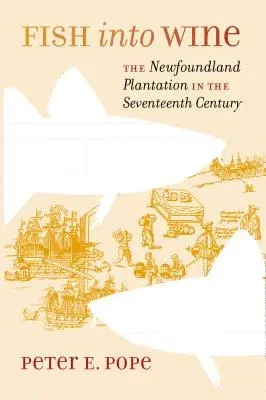Peter E Pope
(Author)Fish into Wine: The Newfoundland Plantation in the Seventeenth CenturyPaperback, 27 September 2004

Qty
1
Turbo
Ships in 2 - 3 days
In Stock
Free Delivery
Cash on Delivery
15 Days
Free Returns
Secure Checkout
Part of Series
Published by the Omohundro Institute of Early American Histo
Part of Series
Omohundro Institute of Early American History and Culture, W
Print Length
496 pages
Language
English
Publisher
Omohundro Institute and University of North Carolina Press
Date Published
27 Sep 2004
ISBN-10
0807855766
ISBN-13
9780807855768
Description
Product Details
Author:
Book Format:
Paperback
Country of Origin:
US
Date Published:
27 September 2004
Dimensions:
23.42 x
15.7 x
2.97 cm
ISBN-10:
0807855766
ISBN-13:
9780807855768
Language:
English
Location:
Chapel Hill
Pages:
496
Series:
Weight:
721.21 gm

